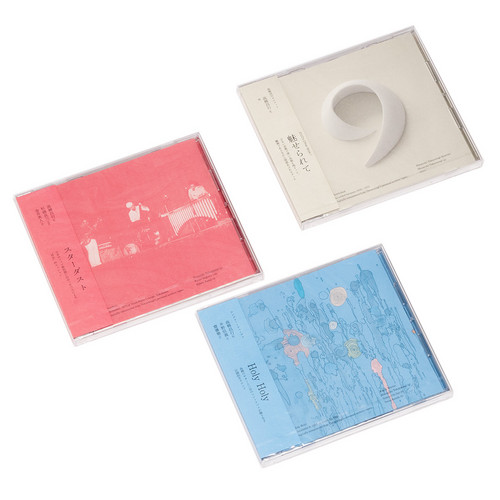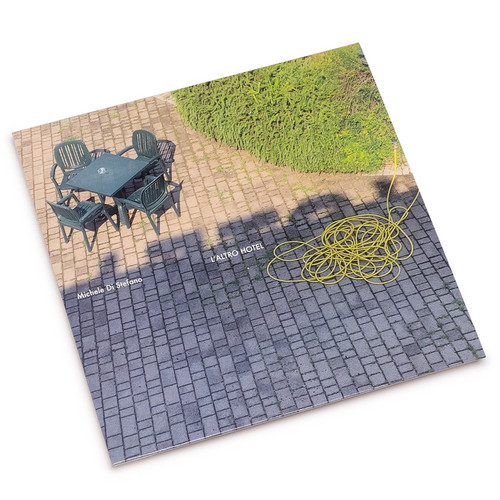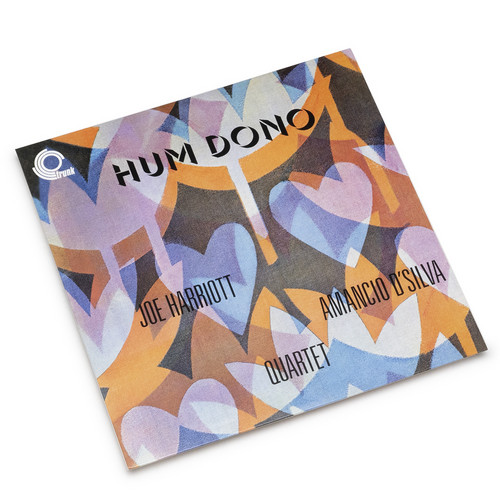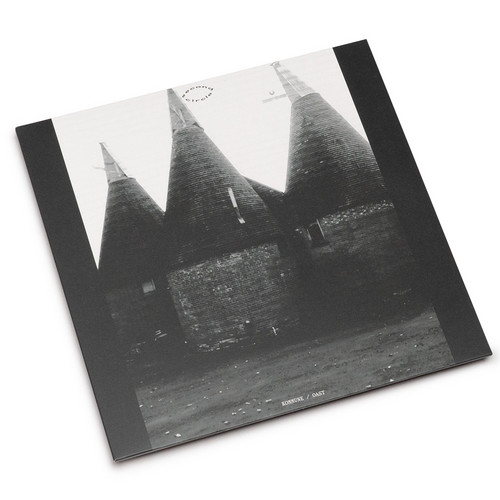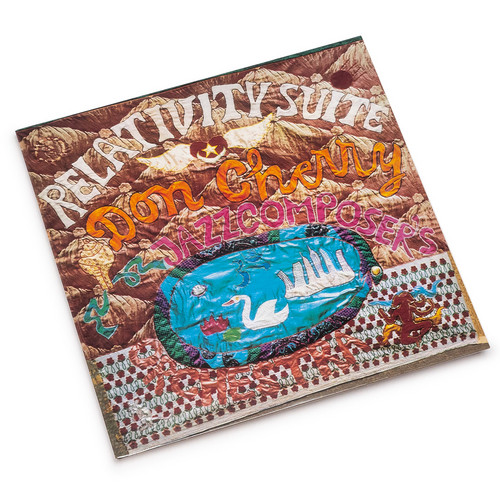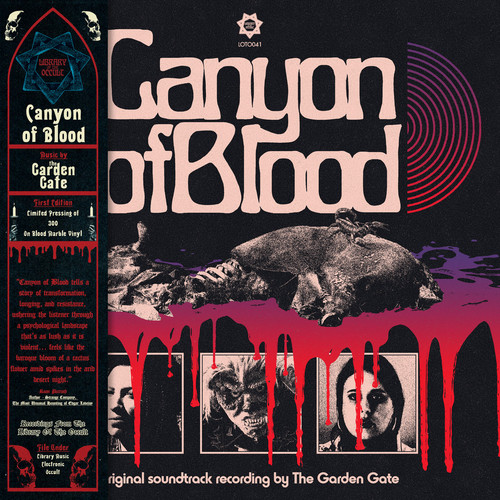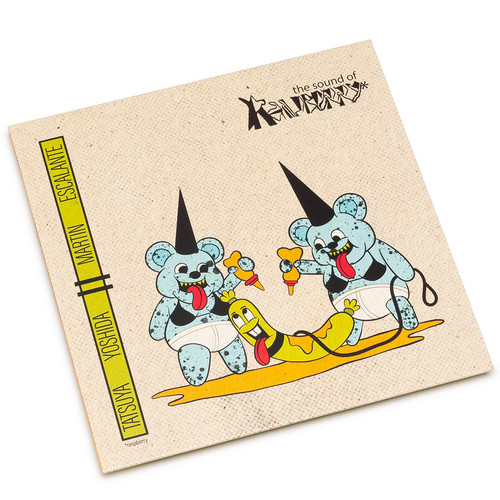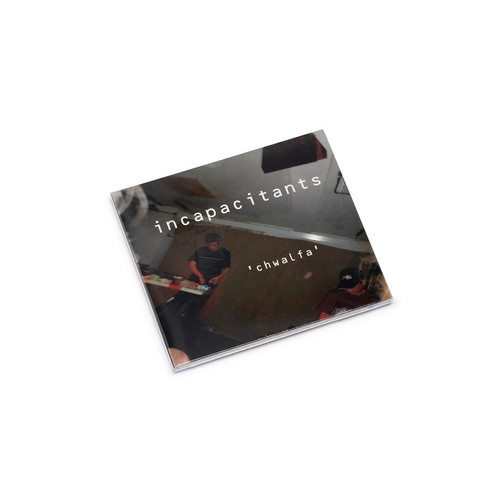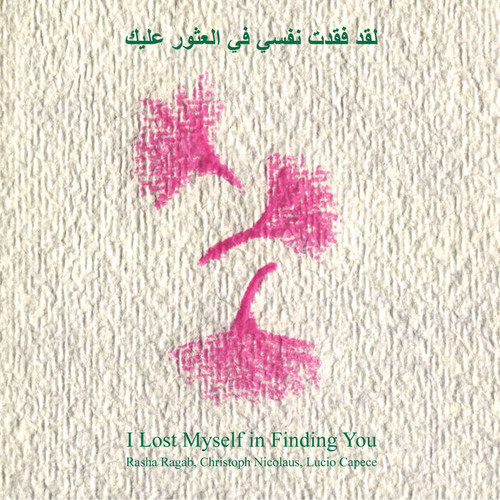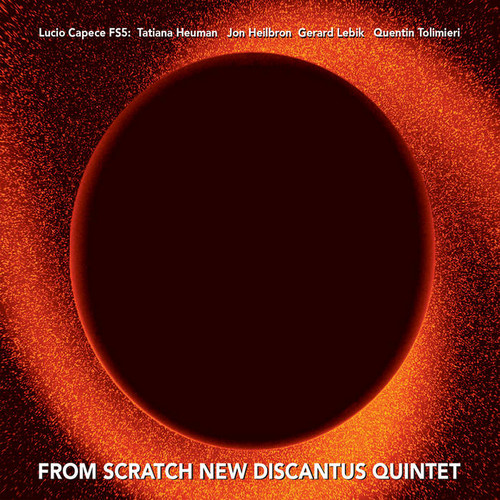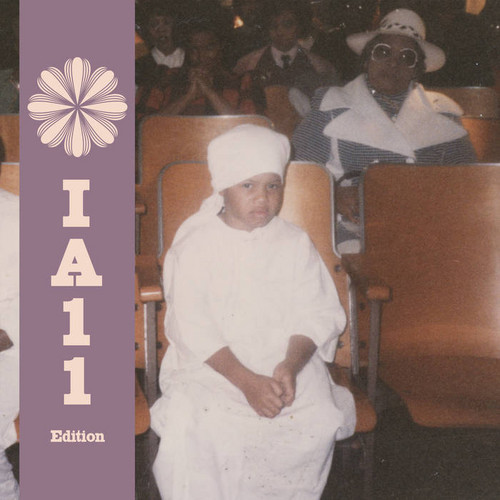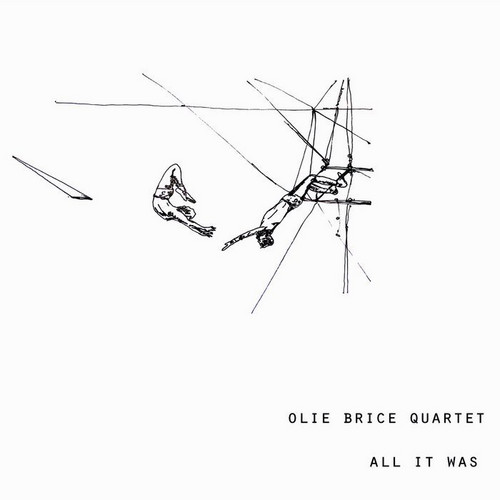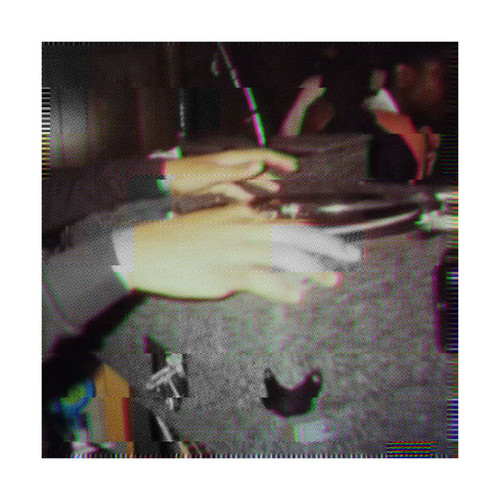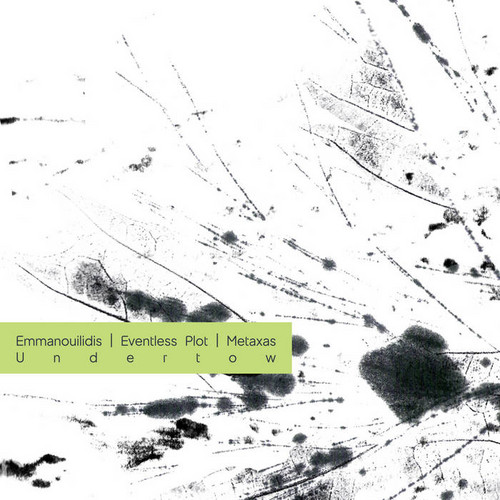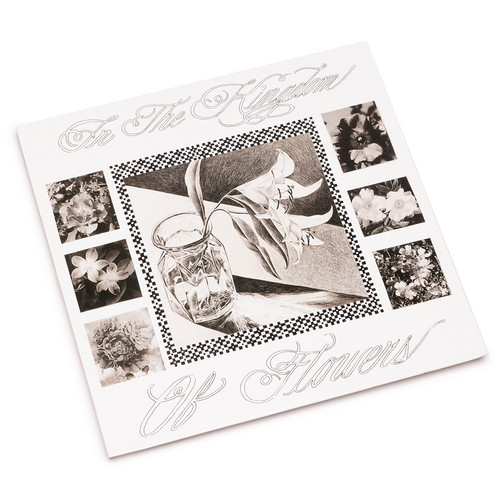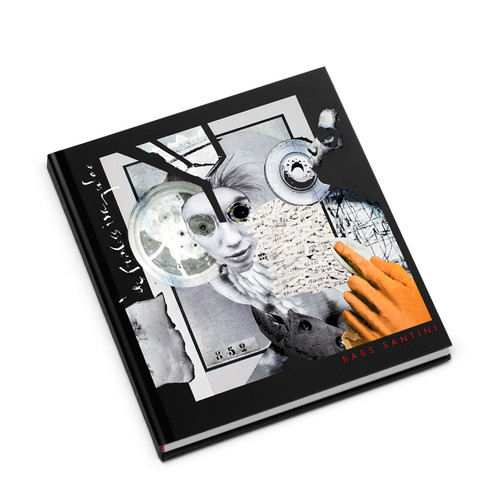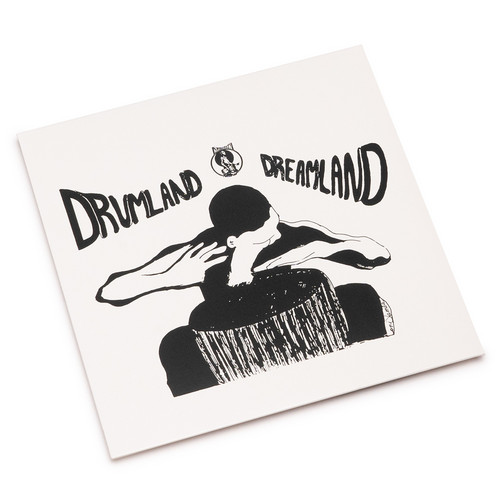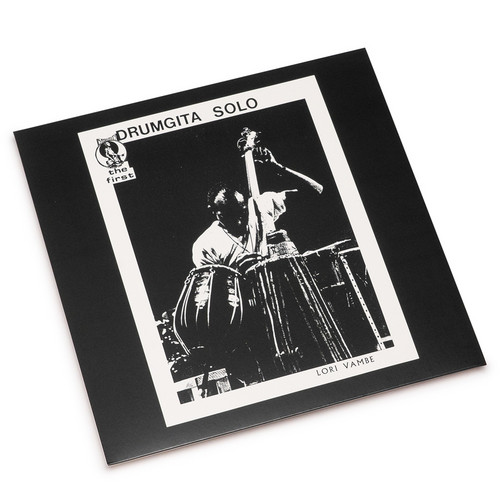New Arrivals
魅せられて = Bewitched
Jinya Disc presents an essential collection celebrating the multifaceted genius of Masayuki Takayanagi, featuring three pivotal recordings that span different periods and approaches in his revolutionary career.
Holy Holly Holly captures Takayanagi's final "Angry Wave's" project in a vital 1985 live recording, featuring twin double basses creating oceanic depths beneath his razor-sharp guitar work. Stardust reunites three Japanese jazz pioneers in an intimate 1979 session, showcasing rare warmth …
L’altro Hotel
** Collector's edition of 20 copies with a set of pseudo-exotic photo-postcards taken by the artist, with original notes and memos ** Xing presents the LP L'altro Hotel by Michele Di Stefano, nineteenth release of XONG collection–artist records. The release is on white vinyl, in a limited and numbered edition of 150 copies, including a collector's edition of 20 with a set of pseudo-exotic photo-postcards taken by the artist, with original notes and memos.
L'altro Hotel by Michele Di Stefano bri…
Hum Dono
Released in 1969, 'Hum Dono' is a legendary 'lost' British jazz plate, described by Trunk as the best modern British jazz LP of all time that will set you back a good £2000 second hand - if you're lucky enough to find a copy. Its beguiling mix of East meets West rhythms, ideas and joy pits Jamaican free jazz virtuoso Joe Harriott and Indian guitarist Amancio D'Silva against some of the UK jazz elite's most essential players. Blending library-style exotica with tabla rhythms, cascading vocals and…
Oast
Deep hypnotic ambient techno from Kommune trio George Thompson, Kyle Martin & Jonathan Nash. Recorded live in converted barn, October 2014. Four long-form compositions showcase mastery of TR-808 & dub techniques. Profound minimalist electronic journey.
Relativity Suite
*2025 much needed repress!* Reissue of Don Cherry's 'Relativity Suite', recorded with the Jazz Composer's Orchestra in 1973. At this time, Cherry was becoming increasingly interested in Middle Eastern and traditional African and Indian music, having traveled extensively and studied with Indian musician Vasant Rai. This suite of songs was particularly influenced by the Indian karnatic singing tradition, as can be heard from the very opening moments of the album. Featuring Carla Bley on piano, Cha…
Medusa
Dead Janitor is the alter-ego for Slovak electronic technician Braňo Findrik. Over the past decade, he has steadily produced a series of digital releases leading to his debut Medusa LP for Urbsounds. With an arsenal of pixelated breakbeats and stuttering samples, Dead Janitor presents an adventurous form of polymetric electronica, echoing the complex IDM explorations of the pioneering work of Aphex Twin and Autechre. Medusa is an apt title for the album that hybridizes digital and analogue techn…
Canyon Blood
Darkly romantic and steeped in candlelit dread, Canyon of Blood is the new full-length album from The Garden Gate. Built around brooding string arrangements, vintage synthesizers, and harpsichord-toned textures, the record conjures a lush, haunted landscape, part western mirage, part baroque hallucination. Laced with 60s occult psych influences and underpinned by dusty drum machines, Canyon of Blood feels like Morricone scoring a fever dream rather than a duel. It’s music that floats somewhere b…
The Sound of Raspberry
Tip! “This is what we need! In these confused, populistic and fascist times — this is the jazz we need! Urgent! Dedicated! Radical! Unique-face-peeling-cutting- edge- and- totally-in-your-face-MF! This is all we need for a better living! Think… Borbetomagus, John Zorn, TG, Masami Akita, Hanatarash… this is it and yet, not at all alike!” - Mats Gustafsson "Absolutely blistering duo album. The sax sounds like it's laser-cutting its way through the atmosphere while the drums expand and contract the…
Chwalfa
Tip! “Chwalfa” (Welsh for “dispersal, rout, upheaval, upset, or a confused or chaotic state”) documents the first return of Incapacitants to the UK since 2016. With the windows boarded up and the subs doubled, two ordinary looking blokes Toshiji Mikawa and Fumio Kosakai obliterate OTO’s usual whisper hush with clipped out, scorched earth tape loops and pedal chains - transporting the room to the planet’s furnace core and back again. It’s all music, all at once, in a whorling vortex of time bendi…
I Lost Myself In Finding You
Erototox Decodings proudly presents "I Lost Myself In Finding You," a mesmerizing new album from the international trio Rasha Ragab, Christoph Nicolaus, and Lucio Capece. Released November 4, 2022, this recording is a unique confluence of voices, tradition, and modern sonic investigation, designed to captivate the ear and spirit alike
- Rasha Ragab: Egyptian performer renowned for her evocative vocal presence, blending singing with Sufi poetry and texts.- Christoph Nicolaus: Innovator of the sto…
From Scratch New Discantus Quintet
"From Scratch New Discantus Quintet is a 60 minute long piece for two horns (Soprano and Tenor sax), double bass, a percussion set (bongo-drum kit), one electronic instrument (analog synth) and piano. Depart from the subharmonic scale, present through 10 stable sustained tones that act as a Cantus firmus, in the way composers Pérotin or Léonin worked in the XII century, initiating what is technically considered ‘counterpoint’, yet in this case, from scratch.
This Cantus firmus acts as a context …
The Animal
Blue Lake reveals his most ambitious album yet, which finds its visionary creator Jason Dungan harnessing the collective alchemy of his band, with ten spirited tracks that resonate with a powerful directness, evoking an ecological connection to the wider world.
The Oracle
Composer, clarinetist, singer and spiritual jazz soothsayer Angel Bat Dawid descended on Chicago's jazz and improvised music scene just a few years ago. In very short time, the potency, prowess, spirit and charisma of her cosmic musical proselytizing has taken her from relatively unknown improviser to borderline ubiquitous performer in Chicago's avant-garde. On any given night you can find Angel adding aura to ensembles led by Ben LaMar Gay, or Damon Locks, or Jaimie Branch, or Matthew Lux, or e…
All It Was
This music was written in a period of intense emotions, as the grief and pain of losing my father tangled and fused with horror and despair at the genocide in Palestine – but life is complicated, and the music also comes from joy and love “Listening intently to raptors” is dedicated to the great bassist John Lindberg, and the title comes from an email correspondence we had during covid lockdown. “After a break” appeared fully formed after quite a long period of composer’s block, while listening …
The Witch Is Back (High School Party Promo Mix '1992)
"This cassette is a promo mix that we originally sold in high school to promote the parties my friends and I did back then (The Witch Is Back); M.O.A. Productions, Frantik Party Productions, some of my earliest House crews. We (Marky P, DJ Juice, DPC, James) did underground house parties in basements and around while in high school. The mix is a fusion of Chicago house, and also the European minimal techno that was coming into Chicago back then. A timestamp on our histories, early roots and what…
Undertow
*70 copies limited edition* Eventless Plot, the renowned experimental duo from Thessaloniki, proudly announce the release of their latest cassette, Undertow. Known for their genre-defying sound and meticulous sonic craftsmanship, Eventless Plot continue their tradition of pushing the boundaries of contemporary music with this immersive new work. Undertow is a two-part suite (Part A, featuring Marco Paltrinieri, and Part B), unfolding through a spacious interplay of analog textures, modular synth…
In the Kingdom of Flowers
Molly Raben's In the Kingdom of Flowers arrives as one of the year's most revelatory debuts - a breathtaking collection of solo organ improvisations that reimagines one of music's most ancient instruments through the lens of contemporary experimental practice. Released by Pennsylvania's Love's Devotee label in a limited edition of 300 copies, this remarkable album showcases Raben's extraordinary technical prowess alongside her deep understanding of the organ's mechanics, history, and social cont…
The Formless Irregular (Book)
The most comprehensive visual archive of one of experimental music's most enigmatic figures arrives in a monumental 560-page catalogue raisonné, revealing five decades of visionary artwork by the mastermind behind Nurse With Wound
Drumland Dreamland
Occasionally, you find music outside the commercial mainstream, outside of everything – the music of visionaries, eccentrics, inventors, loners. Moondog, Daphne Oram, Harry Partch are from this mould. And so too is Lori Vambe.
Drumgita Solo
Occasionally, you find music outside the commercial mainstream, outside of everything – the music of visionaries, eccentrics, inventors, loners. Moondog, Daphne Oram, Harry Partch are from this mould. And so too is Lori Vambe.
